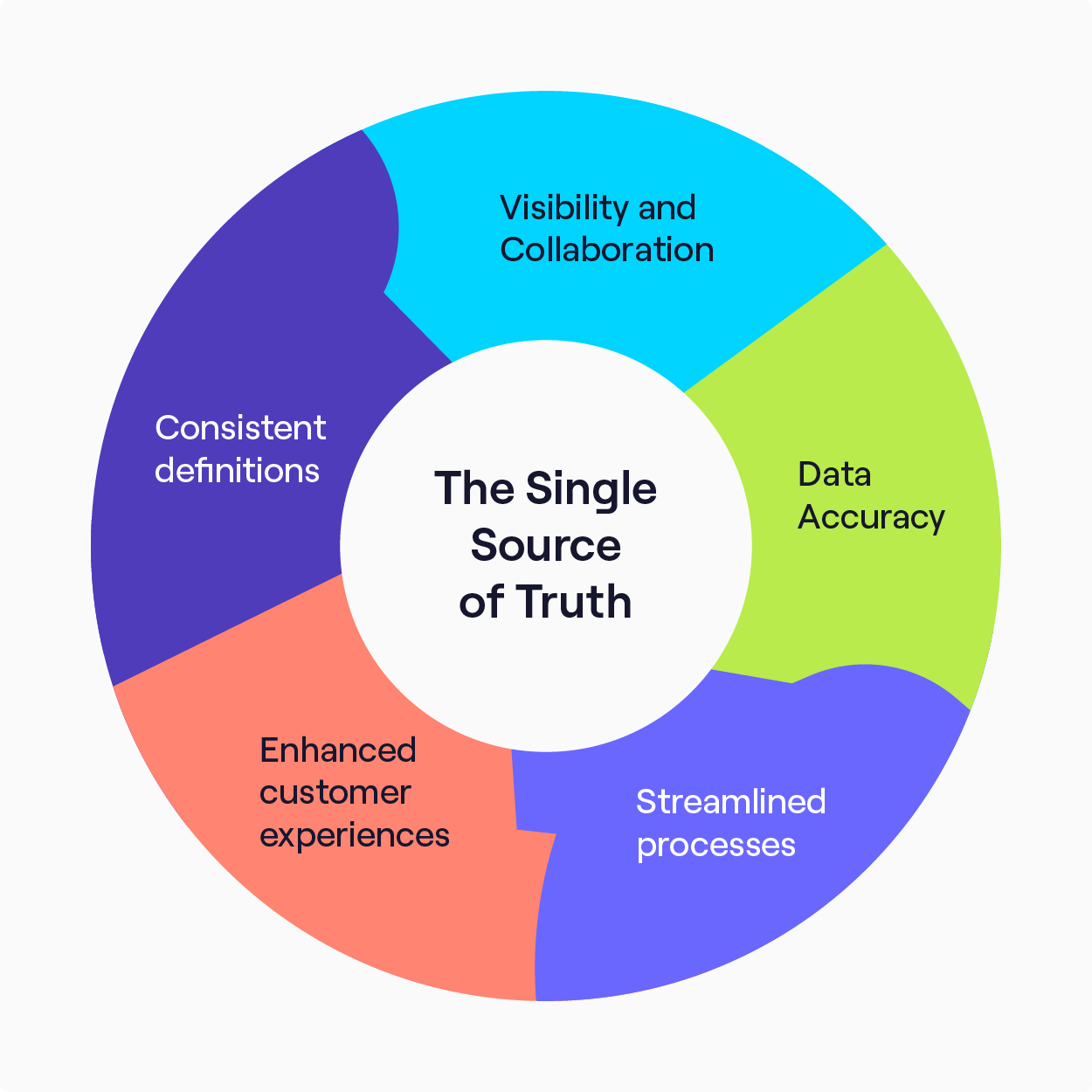Single Source of Truth: The Journal of RevOps
A Complete Guide to The Single Source of Truth
Hey GTM Operators 👋
We've broken down the strategies and processes required to create an Authoritative Source of Truth in your organisation based on our experience.
Over the coming chapters you'll learn how to break down data siloes, increase transparency across GTM teams and build an authoritative source of data and information. Let's dive in 👇.

The Single Source of Truth
In RevOps, the Single Source of Truth (SSoT) is a foundational principle that promotes a singular, authoritative source of data or information within an organisation.
This means having a unified source of truth for all revenue-related systems, tools or processes, ensuring that every department and stakeholder relies on the same data, definitions and information.
Jeff Ignacio defined the SSoT as:
‘The practice of structuring information models and associated data schemas such that every data element is mastered or edited in only one place, providing data normalisation to a canonical form.’
This eliminates discrepancies and misalignment and enables organisations to operate more effectively.
We’ve created a complete guide to establishing a Single Source of Truth within your RevOps function. This journal will cover all topics, from metrics to territory planning, that will enhance your revenue generation and efficiency.
What are the benefits of an SSOT?
1. Improving visibility and collaboration
RevOps necessitates close collaboration between marketing, sales, and customer success teams. An SSoT streamlines this collaboration by ensuring everyone is on the same page regarding metrics, KPIs, and customer insights. This results in a more cohesive approach to customer acquisition and retention.
By sharing a unified dataset, everyone can access the same information. This allows teams to work towards common revenue goals.
As Jeff Ignacio shared:
"If you have a one-source-of-truth set up where everything funnels into one place with strong data governance and strong definitions around each data set, and then you set up an opportunity for folks to access the data, then everyone is drinking from the same well.
Everyone can look at the data in one unified view or at least de-risk how they’re viewing the data.’
2. Improved data accuracy
Data discrepancies are common in organisations with multiple systems and databases. Maintaining high data quality is essential for a successful RevOps strategy.
When information is scattered across different systems, the risk of data errors and inconsistencies multiplies. An SSoT addresses this problem by ensuring all departments work from the same data source.
They may utilise data suppliers who continuously update and verify data, providing organisations with reliable and up-to-date information and filling in any gaps or inaccuracies.
It also serves as a data quality assurance mechanism, ensuring that data is clean and consistent.
3. Centralising data
In RevOps, various processes are interconnected, from lead generation to customer retention.
An SSoT simplifies these processes by centralising data and reducing manual data entry.
Integrating different software solutions is key and ensures that the data from different tools is gathered and presented.
This adaptability is important as companies introduce new tools to their tech stack.
4. Better customer experiences
An SSoT allows organisations to gain a holistic view of the customer journey and identify drop-off rates.
RevOps teams can personalise customer interactions, proactively address issues, and provide seamless experiences by leveraging accurate data.
This, in turn, improves customer satisfaction and loyalty, leading to increased revenue.
5. Improved decision-making and forecasting
An SSoT empowers RevOps teams to make informed data-driven decisions, forecast accurately and plan effectively.
With reliable data, organisations can analyse performance, identify trends, and adjust strategies in real-time.
Accurate forecasting ensures that resources, such as sales reps, marketing budgets, and customer support, are allocated optimally.
6. Definition consistency
Different departments within an organisation may interpret key terms and metrics differently.
These variations can lead to confusion and miscommunication. An SSoT allows organisations to develop a shared understanding of important terms and metrics.
These include defining what constitutes a lead or a customer and tracking key metrics such as revenue, conversion rates and MQLs.
Closing thoughts
A Single Source of Truth is integral in RevOps.
It connects multiple functions, enabling collaboration, data quality assurance, and informed decision-making. By centralising data, an SSoT enhances accuracy, productivity, and adaptability, which are critical to long-term growth and revenue success.
The following chapters will delve into these topics and benefits in further detail, so continue reading to check out more.
Like what you've read?
Check out our guide to 35 funnel fixes that doubled our MQL to Opp rate, a library of pipeline tactics from 12 industry experts and 4 coaching videos to remedy problems from MQL to expansion. 👇
